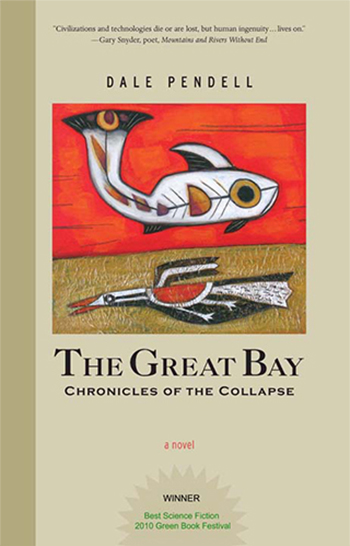 The Great Bay
The Great Bay
Dale Pendell
The Great Bay, a novel by Dale Pendell (1947-2018), opens with humanity on the threshold of collapse of the planetary anthropogenic infrastructure based on technology and fossil fuel. A global pandemic driven by a microbe with very high contagion and very high mortality has dramatically reduced the world’s population. The pandemic is over after the first few pages and the remainder of the book explores the aftermath – and what an extraordinary exploration it is. The geographic feature that gives the book its title, the Great Bay, formed over several centuries of melting polar ice, rising sea levels, and heavy rain. It is what will certainly happen in central California when sea level rises even a relatively small amount – a large inland bay will form, connected to the Pacific Ocean by way of the Sacramento River, present-day San Francisco Bay, and the Golden Gate. This Great Bay forms a geographic centerpiece and anchor for the stories of community that take place in that region, although the stories have universal significance. In the course of thousands of years, as human civilization reconstitutes after its precipitous collapse, it does so in smaller communities and without a focus on technology. Such a focus might not even be possible, given that the relatively easily accessible mineral resources we have enjoyed for centuries would have been exhausted. Thus, different aspects of the human psyche are cultivated, and what might be called spiritual or shamanic connections with reality are developed to a high level. Less technology, more shamanism, a resulting different metaphysical frame on the nature of mind, all contribute to a vastly different course for civilization, and a vastly different take on reality.
DAVID PRESTI
Teaching Professor of Neurobiology and Psychology
Department of Molecular and Cell Biology
This book is part of the 2022 Berkeley Summer Reading List. Stay tuned for more weekly posts!